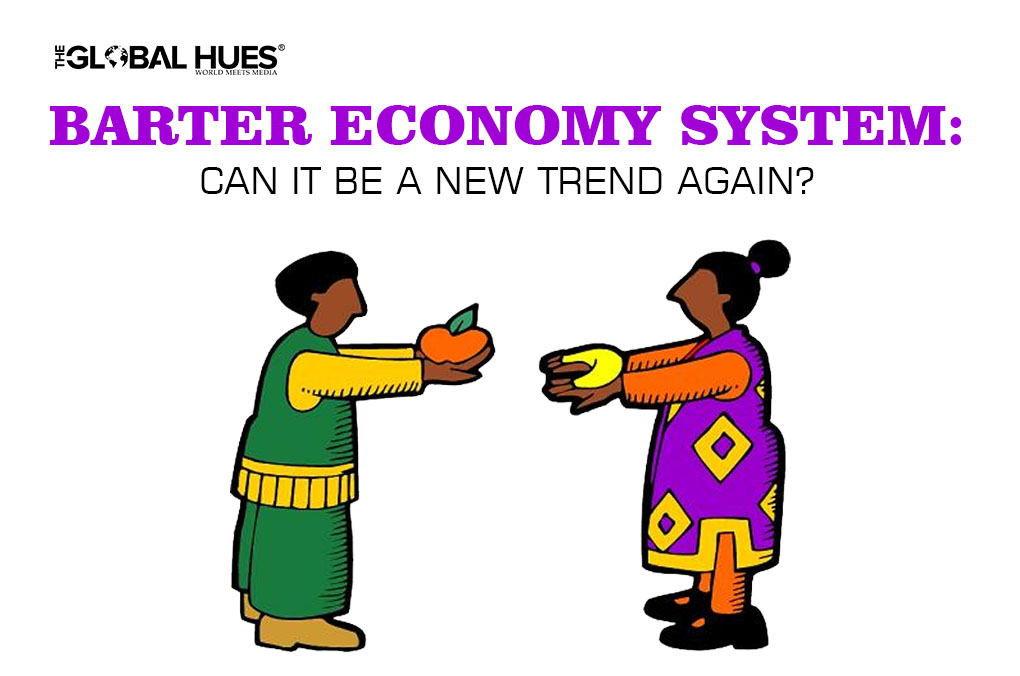A barter system is one of the oldest methods of exchange. It is a cashless economic system in which services and goods are traded at fairly negotiable rates. This system was in practice for decades before money was introduced. In this system, people used to exchange services and goods for other services and goods in return. The value of bartering items is negotiable with the other party. Over time, this system has been accepted on the global level. It creates a deeper and personal relationship between trading partners more than just a typical monetized transaction and builds a comprehensive professional network that helps traders to market their businesses.

HOW DOES THE BARTER SYSTEM WORK?
The process of bartering usually takes place between two parties but it is not always a necessity. The process can be often done multilaterally through a trade exchange. Bartering is not easily preferred by developed countries; they avoid getting engaged in bartering unless they’re done in association with the standard monetary system of the country. This system is useful in establishing a balance in times of monetary crisis. They maintain the trading of goods and services and along with it keep the country functioning. This situation occurs when physical money is not available or when a country goes through hyperinflation or a deflationary spiral.
HOW IS IT BENEFICIAL?
There are various circumstances in which a barter economy can help. There are often times when goods and services are available but cash is scarce. At times like this, Bartering helps people to get what they need with what they already have.
If an individual needs an addition to a home but is lacking finances to purchase it; In that case, they can apply to the barter system to supply their requirements by exchanging the furniture they are no longer using with the need for the required lumber.
However, this deal has to be negotiated by both parties. It is a two-way road, where both parties get mutually benefited without the need to exchange cash or another monetary medium.
WHAT ARE ITS DRAWBACKS?
It is no doubt a good system but it does have its disabilities. The problem with the barter system is its inefficiency. The first of its inefficiency is that the person who needs goods may not be able to get a supplier who needs something that the seeker can offer. The second one is the guarantee of fair exchanges. In the monetary economy, the exchange of goods and services takes place more efficiently and easily.
HOW IS IT WORKING IN TODAY’S SCENARIO?
The barter economy system is one of the earliest, leading monetary systems recorded in history. It is successful and easy to use in nearly every field. As this generation is now an excessive user of technology and gadgets, people tend to participate in barter and other reciprocal systems without having second thoughts about it. It has made a considerable comeback using more advanced techniques to aid in trading, for instance, the Internet. It is now hugely used in providing web design or tech support for a farmer or baker and receiving vegetables or baked goods or any product in return. And along with it, Internet-based exchanges are also in trend. An example is exchanging content creation for research.
According to the New York Times, Online barter exchanges became especially popular with small businesses after the 2008 financial crisis.
As prospects and sales dwindled, small businesses willingly turned to barter exchanges to generate revenue. These exchanges helped users to find new customers for their products and get access to goods and services using their unused inventory.
These exchanges also worked with custom currency, which turned out to be helpful to purchase services such as hotel stays during vacations.
According to The New York Times, barter exchanges reported double-digit increases in memberships in 2008. It was estimated to have touched about $3 billion during the financial crisis.
WILL IT THRIVE?
As barter is entirely based on reciprocity, it requires a mutual ground and strong communication of requirements between traders. This requirement may result in a complicated system, but in a sufficiently large system traders can meet their supply to most needs. A mutuality creates a sense of connectedness and community among traders.
The ecosystem of modern-day work, the comprehensiveness of the Internet, and the high use of social networking have all contributed to its spread. Some alternative economic systems are gift economies, sharing economies, and time banks which are not mutually exclusive, and they all can operate within a capitalist system.
However, as these systems work based on reciprocity instead of profit and growth, there are understandable doubts that they could undermine the current economic system but in the past few years, barter has witnessed a revival as a means of countering economic insecurity, unemployment, and worker exploitation.
So by observing a few steps, and applying a good measure of common sense, most businesses get the benefits of bartering. It offers a better cash flow, new business, and a fresh marketing path within easy grasp.




